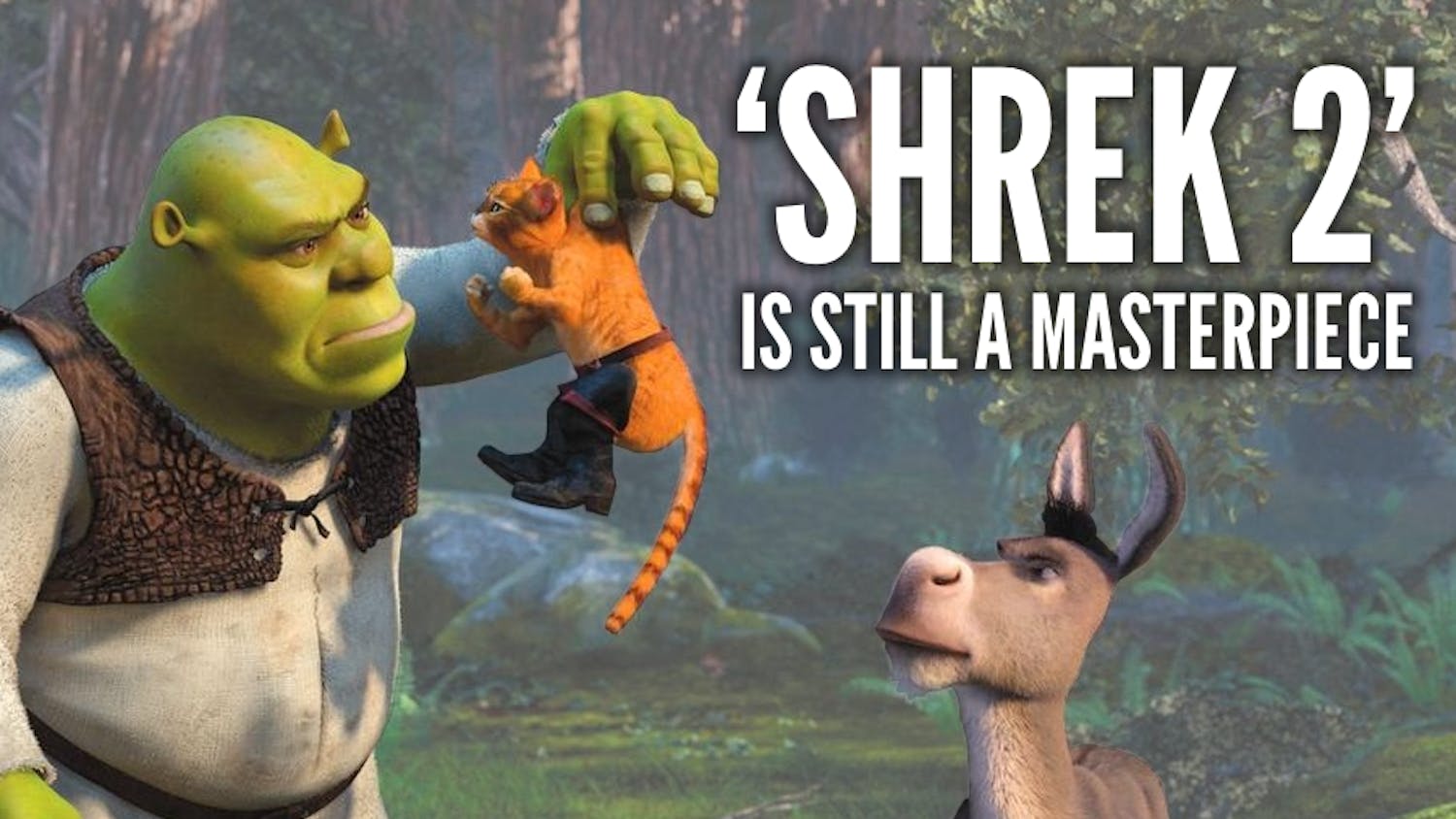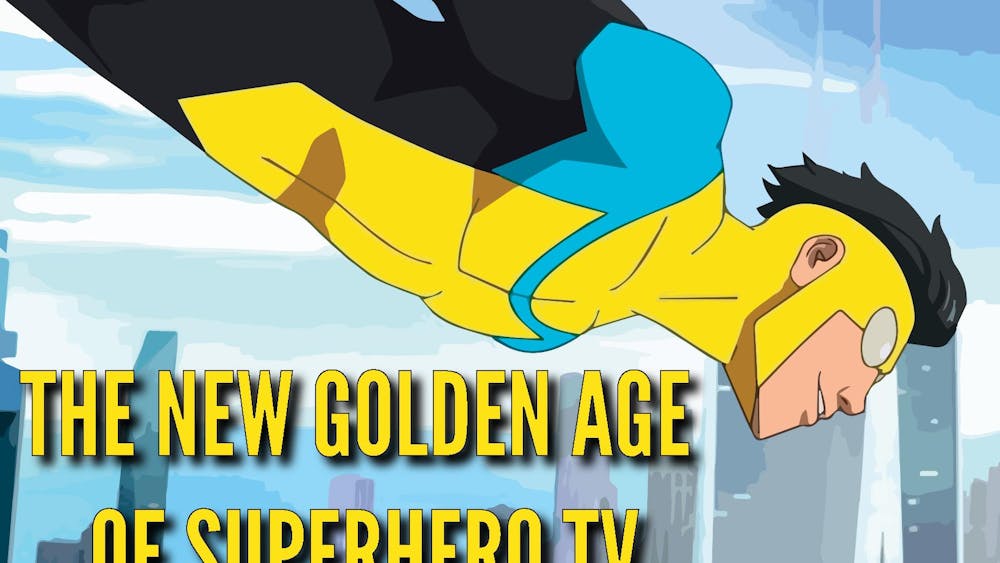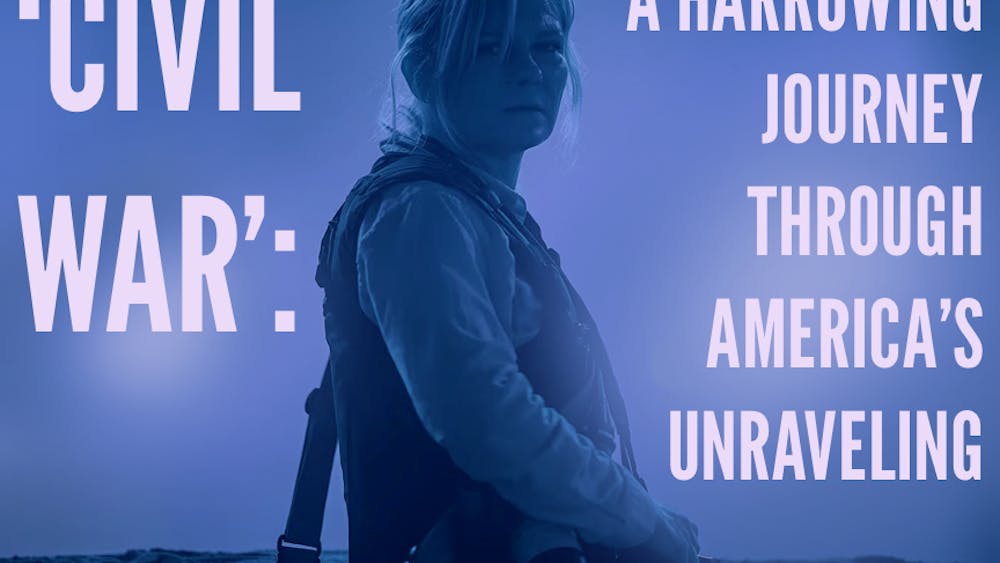
Sprawled on white towel against rough California fescue grass, naked except for a pair of frilled underwear with the red-orange logo of 7-Eleven in its center. Smiling through squinted eyes and blocking the sun’s glare with an upraised hand, Phoebe Bridgers stares back at the camera completely, voluntarily, exposed.
The photoshoot and adjoining interview, which took place for the now “journalism-focused” magazine Playboy during a quarantined west coast June, is representative of Bridgers as an artist. Physically, lyrically and socially, the 26-year old star of the indie rock scene near constantly shows a disregard for opinions –– at least those of others.
Bridgers’ Twitter and Instagram accounts, currently active under the pseudonyms “Traitor Joe” and "Fake Nudes” respectively, are blatantly, almost purposefully, unconcerned. A casual drag back of the mouse lands on an errant tweet that reads in lowercase typescript, “remember when we all just let neil young say milk blood in a song.” A photograph posted on Instagram of equal eccentricity features Phoebe in fishnet tights while a FaceTime guest’s image rests in the corner, captioned “outtake of me camming for davis and nick cave and my dead dog.”
As evident in her Playboy spread and earlier, full-frontal shoot for Rolling Stone, Bridgers appears indifferent to popular opinion and notions of presentability. Social media only seems to take that attitude and put it into words. Posts pass through the hands of no editor but herself and seem bothered only with those who enjoy them.
Music, although not as ostensibly, is where Bridgers truly reveals herself. Posing nude for a widely circulated magazine is one kind of exposure, an unfiltered, apathetic social media presence another. But lyrics and music reveal parts of a person that photographs and 280 characters always fail to.
Bridgers’ sophomore effort “Punisher” is a house full of single-paned windows, its interior effortlessly visible to any passerby.
Released this past June via Dead Oceans, the album feels like a shouted whisper. Bridgers’ voice ethereal, the lyrics both distant and tangible, “Punisher” is a heard maturity from “Stranger in the Alps” of three years prior. Each track still possesses a familiar sound and lyrically never think too highly of themselves. Yet, from beginning to end, each sounds and feels markedly more developed than those of her previous album.
Opened with the sole instrumental track “DVD Menu,” the record effortlessly flows into a first half led by the two pre-released singles featured: “Garden Song” and “Kyoto.”
The former, a reflection on Bridgers’ life in Los Angeles, sounds almost as if it were recorded then played over itself. Radio static and an unerring bass melody hang in the background, while she sings in hushed tones, “I’m at the movies, I don’t remember what I’m seeing / The screen turns into a tidal wave.” The track plays and feels like a soundtrack to a dream –– something one can listen to but enjoy without any needed attention.
“Kyoto” follows as the record’s most radio-friendly track. Steady, percussive drumming and a cacophony of horns accompany a memorable chorus. A love song to Japan and touring, the lyrics “Got bored at the temple / Looked around at the 7-Eleven / The band took the speed train / Went to the arcade” feel notably relaxed in theme and sound compared to the rest of the album, regardless of what message Bridgers might be trying to convey.
“Halloween” and the eponymous “Punisher” prop up the album’s center, building a gradual heap of sound that crescendos at the sixth track of “Chinese Satellite.”
“Punisher” particularly stands out, giving a body to the album’s title and acting as a powerful meditation on depression and fandom. In an interview with Stereogum, Bridgers describes a “punisher” as “this archetype fan who’s a little too enthusiastic” and just “another person telling her [an artist] how inspiring she is.” The track touches on the role Phoebe used to occupy and the life she lived before, relative, fame. “What if I told you / I feel like I know you? / But we never met,” unmistakably fixes itself as a line that a ‘punisher’ would utter, but does so without limiting itself to such.
Closing with a muffled gunshot, two of the album’s strongest songs, “Graceland Too” and “I Know The End,” bring the stylus of the record player to a halt.
“Graceland Too,” as one might expect, has a visibly folkier tune to it than its predecessors. An acoustic guitar, maybe a banjo and Bridgers’ Boygenius bandmates Julien Baker and Lucy Dacus harmonize about togetherness and Nashville. In the Stereogum interview, Phoebe says, “I love a setting for a song. It’s just I have a hard time visualizing things. I think in weird grey clouds. In songs, I try to put someone somewhere.” If not in words, then in melody and noise “Graceland Too” depicts Nashville.
Opening with a breath and ending with (literally) a scream, “I Know The End” might be about a country on fire, a pandemic or a foreseen death –– the lyrics certainly seem to suggest that kind of prescience from Bridgers. But, Phoebe penned the lyrics to the album long before an invisible enemy trapped us all indoors and protests became the only way to inhabit a crowd. The song is about a journey down a country highway, littered with firebrand billboards that read “I Know The End” and being conscious of where its stopping point will be.
Maybe the fact that “I Know The End” suggests a false interpretation is evocative of Bridgers as a whole. A lot of the seemingly artistic things she does –– nude photoshoots, inflammatory tweets –– appear to have deeper meaning, but only really take place because she wants them to, because she enjoys them.













